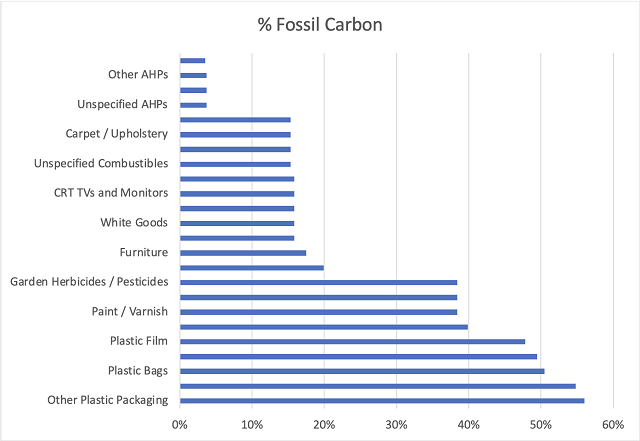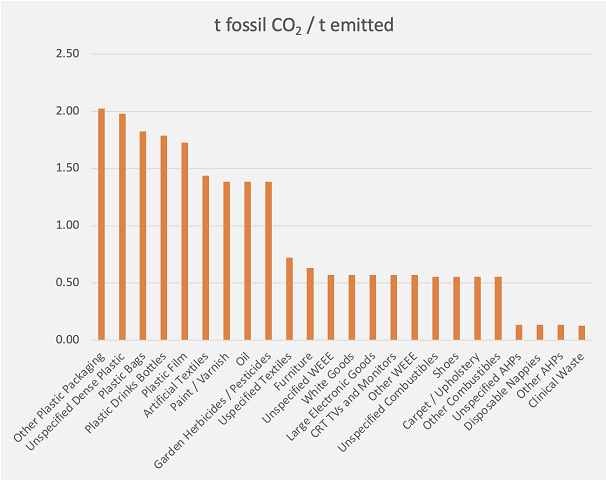This is the third of four Frith Resource Management blogs on the UK ETS. The first introduced and explains the ETS-EfW scheme, the second reviews the current DESNZ consultation, this one discusses fossil carbon and the fourth identifies ETS-EfW Allowance costs, their avoidance and mitigation, and looks at the future of ETS-EfW under net zero obligations.
Fossil carbon content of waste
ETS-EfW carbon emissions and associated costs will be dependent on the fossil carbon content of the waste. Customers to EfW facilities will provide wastes with varying and variable fossil content. So how should the cost of the ETS-EfW Allowance be passed back to Customers? EfW operators are going to have some uncertainty in their fossil carbon emissions, and this risk will be passed back as a cost to Customers. The ETS-EfW emissions factor approach does not incentivise EfW operators to require individual waste suppliers to reduce the fossil content of their residual waste where the EfW operator can pass the cost on.
Local Authorities can however, in operational terms, seek to reduce the carbon content of their residual waste by focusing on reusing and recycling fossil-based wastes. The following two graphs illustrate the fossil carbon content of materials and fossil CO2 emitted per tonne:


Recycling of hydrocarbon-based wastes will therefore significantly reduce the fossil content of the residual waste and thereby (subject to the monitoring system employed) allowing the ETS-EfW cost to be mitigated to a degree. It is worth noting that the ETS obligation is not wholly based on fossil CO2 emissions; nitrous oxide (N2O) and perfluorocarbons also fall under ETS, but these (typically) would be less than 5% of the emissions from residual waste. Parts 1, 2 and 4 of this series of blogs provide further insight into the ETS implications for Local Authorities.
Frith Resource Management provides technical support to local authorities and the private sector on collection, treatment and disposal issues, for details see www.frithrm.com, call 01746 552423 or email info@frithrm.com.













